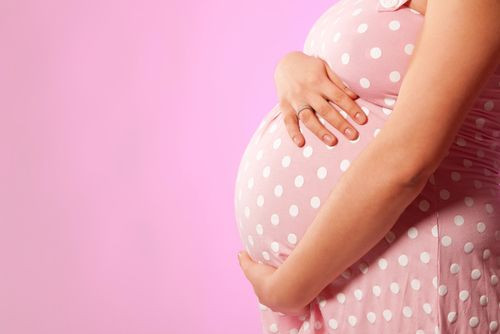Autism A Product Of The Environment, Not Genetics, In Some Children Of Mothers Over 35

Scientists believe the reason fathers over 40 are more likely to have a child with an autism spectrum disorder is due to gene mutations in their sperm-making cells that gradually accumulate throughout the years. Yet scientists know little about why mothers over the age of 35 face a similar high risk. After exploring different possibilities, researchers from Albert Einstein College of Medicine of Yeshiva University discovered environmental influences, not genetics, may cause autism in some children of older mothers.
“Although much more work is needed, our study reveals a plausible way that environmental influences — which we know are important in [autism] — might be exerting their effects," said Dr. John Greally, the study's senior author and professor of genetics, of medicine, and of pediatrics.
Rising Tide of Autism
In March, the Centers for Disease Control and Prevention announced that one in 68 U.S. children has autism — a 30 percent rise from two years ago! While a significant number of these children have genetic mutations, some past studies have proven that not all cases of autism spectrum disorder (ASD) are due to faulty genes. A recent major study, which included more than 14,000 children, concluded gene abnormalities could explain only half the risk for developing autism. Add to that any number of identical twins, where one twin has autism while the other does not.
Based on these studies, Greally’s team began their search for a reason why older mothers are at higher risk of giving birth to a child with autism with a simple hypothesis: whatever the influences are that lead to autism in children of older mothers they probably are already present in the reproductive cells which produce the embryo or they are present during the very earliest stages of embryonic development. And, if they are present this early, they would affect all the cells of a developing embryo and not just the brain cells. "This would mean that whatever abnormalities found in the cheek cells of children with [autism] ... should exist in their brain cells as well," Greally said in a press release.
To begin the experiment, Greally’s team enrolled 47 children with autism and 48 typically developing (TD) children of women over 35. Since the eggs of older mothers are prone to having abnormal numbers of chromosomes, the researchers first analyzed cells from each of the children for any chromosomal defects or abnormal numbers that might account for autism. No such problems were found in the cells of any of the children, including those with autism.
Next, the researchers examined the children's cells for evidence of environmental effects. Here, the team struck gold.
They discovered a clear difference between the separate groups of children. In the autistic children, the researchers detected two groups of genes that were epigenetically distinctive. (Epigenetics concerns the many, choreographed chemical reactions that activate and deactivate parts of our genes as we develop, even in the womb.) The distinctive groups consisted of genes that are expressed in the brain and code for proteins involved in nerve transmission functions that previous studies have shown to be impaired in children with autism. Plus, these two gene groups tended to interact with genes known to be mutated in children with autism.
“Our findings suggest that, at least in some individuals with an [autism spectrum disorder], the same pathways in the brain seem to hit by both mutations and epigenetic changes,” Greally said. “So the severity of someone's [autism] may depend on whether or not a gene mutation is accompanied by epigenetic alterations to related genes.” Overall, the team concluded that, in all likelihood, environmental influences are responsible for the epigenetic changes that dysregulate these genes.
"In the case of older mothers at risk for having children with ASDs, one possible environmental influence might be the aging process itself, which could disturb epigenetic patterns in their eggs,” Greally said. “But there are other possibilities as well.”
Source: Greally J, Berko E, Suzuki M, et al. Mosaic epigenetic dysregulation of ectodermal cells in autism spectrum disorder. PLOS Genetics. 2014.



























